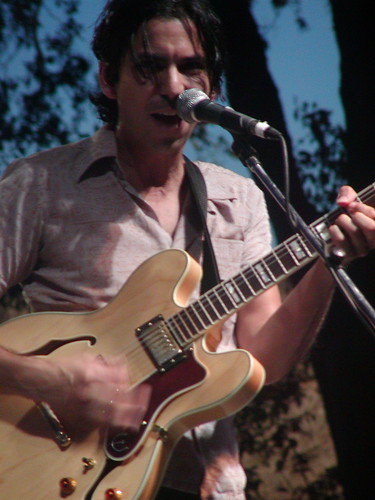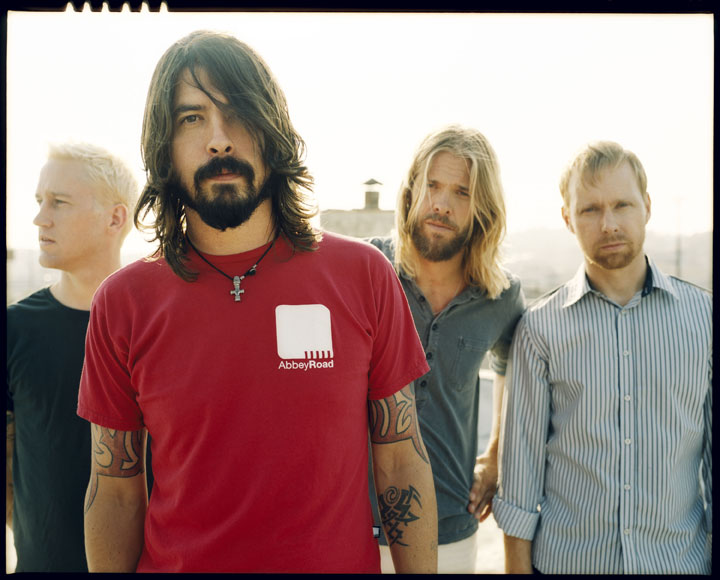
Ben Harper could be pop music's Ferris Bueller. He can play folk, funk, Stax/Volt, Motown, reggae, rock, blues, gospel, indie, jam, and rap. The sportos, the motorheads, geeks, bloods, waistoids-- they all adore him. They think he's a righteous dude. He can be everything to everybody. He could be Elvis Presley. He could be James Brown. He could be Jay-Z. Or...he could be Lenny Kravitz.
As multi-talented a musician as Harper is, he quite often comes across as too respectful, too beholden to the music he adores and emulates so well. He seems far too earnest, so much so that his music--and his vocals--sometimes borders into Dullsville. His most exciting records come from when he frees himself from rigid structure and sound, giving himself the freedom to create something other than genre pastiche. In "Steal My Kisses," Harper does just that.
He synchopatedly strums over a basic three-chord and lets his band work tastefully around it. It's typical jam band, reggae-light music, and it's pleasant enough. It's mall music, funk for the Abercrombie & Finch generation--the type of music that Harper plays so well that he could probably do it in his sleep. And he has before, as his music often meanders and noodles needlessly. Harper's on his game here, though, as he keeps the noodling down to a bare minimum, just enough to sustain the groove and support the song (rather than have the song support the noodling, which is where so many jam bands--and Harper is guilty of this, too--go terribly wrong, because their musicians don't have the chops nor the imagination to make such a concept work well). He adds a couple of fantastic touches, too. First, there's the opening--and closing--beat-boxing. It's good enough to be on a par with some of the Fat Boys' work; in fact, the entire song could work around it instead of the guitar pattern. Then, there's the a cappella break about two-thirds of the way in, coming straight from doo-wop. Sweet. The band re-enters, plays for a bit, and the song fades on Harper's beat-boxing.
Harper is often praised for his organic sound and his organic approach to music, but here, Harper lets the studio work for him, giving him precise and concise control over elements of his music that get away from him live. He combines genres (funk, reggae, rap, doo-wop) to create a ditty more refreshing and life-fulfilling than any ol' Bonnaroo romp. "Steal My Kisses" is so choice. If you have the means, I highly recommend you picking it up.












